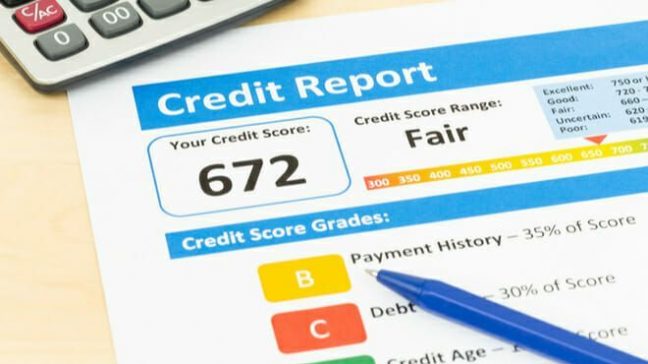Getting credit with poor credit is tough, but you can still borrow money with average to below-average credit if you know where to look. Today, let’s talk about personal loans, which might be the way to go if you need to borrow money for a project or large expense.
But before we tell you which fair credit personal loans are the best, we wanted to be honest about the fact that there’s really no way to tell what minimum credit score is required for most loans. This is because loan issuers don’t make a habit of disclosing this information publicly, so the only way to know for sure if you qualify is to actually apply. This is an (annoying) problem within the industry that we just wanted to point out.
While we did our best to find lenders that have been reported to accept fair credit scores, our research is also based on factors like loan terms available, repayment flexibility, interest rates, and other important things that will affect your borrowing experience. Find the best personal loans for fair credit and learn how to choose the right loan for you here.
What’s Ahead:
- Best personal loans for fair credit
- Best overall: SoFi
- Best for debt consolidation: Marcus by Goldman Sachs
- Best for short loan terms and bad credit: Avant
- Best for flexible repayment terms: LendingPoint
- Best for small loans: LendingClub
- Best for young borrowers: Upstart
- Best for customer satisfaction: Best Egg
- Best for better credit: Discover
- Loan aggregators you can use to find personal loans
- How we chose the best personal loans for fair credit
- What is fair credit?
- How lenders look at your credit when you apply for a personal loan
- What other loans can you get with fair credit?
- How to choose the best fair credit personal loan for you
- Should you get a personal loan?
- How to apply for a personal loan
- Steps you can take to improve your credit score
- Summary
Best personal loans for fair credit
If you want a great fair credit personal loan with reasonable interest rates, a wide range of terms and amounts to choose from, and features to help make paying off your loan a little less stressful and more convenient, you have to start with the right lender.
Our research has shown that an online lender is more likely to offer you a better interest rate, better terms, and better odds of approval with average credit than a bank or credit union. Plus, online companies make it easier and faster to apply for a loan, and most will even give you an instant decision.
We’ve searched a number of different loan options and offers to find the best online lenders for personal loans for fair credit. They are:
- Best overall: SoFi
- Best for debt consolidation: Marcus by Goldman Sachs
- Best for short loan terms and bad credit: Avant
- Best for flexible repayment terms: LendingPoint
- Best for small loans: LendingClub
- Best for young borrowers: Upstart
- Best for customer satisfaction: Best Egg
- Best for better credit: Discover
Best overall: SoFi
Features
- Loan amounts: $5,000 – $100,000
- APR: starting at 7.99% APR (with autopay discount)
- Loan terms: 6 – 84 months
SoFi is a popular online lender that offers unsecured personal loans up to $100,000 with interest rates starting at 7.99% APR (with autopay discount). SoFi is one of the best personal loan lenders out there because they provide same-day funding (with approval), multiple ways to reduce your interest rate, and a really wide range of loan amounts and loan terms to choose from.
A few benefits of borrowing with SoFi include unemployment protection that allows you to temporarily lower your monthly payments until you find a new job, a 0.25% AutoPay Discount, and a 0.25% direct deposit discount. And according to SoFi, 86% of applicants who were approved for personal loans in 2021 received their loan on the same day.
To top it all off, SoFi doesn’t charge origination fees, late fees, or pre-payment fees.
Just remember that although you can qualify for a SoFi personal loan with a fair or average credit score, you might not like the loan options you get or might be turned down if your credit history has problems. That’s why it’s a good idea to apply for preapproval and check what rate you might qualify for.
Learn more about SoFi personal loans or read our full SoFi review.
Best for debt consolidation: Marcus by Goldman Sachs
Features
- Loan amounts: $3,500 – $40,000
- APR: 6.99% - 24.99%
- Loan terms: 36 – 72 months
We chose Marcus as the best personal loan for debt consolidation because this lender charges no fees and rewards you for making your payments on time, which is a lot easier to do when you have just one payment. If you have a lot of high-interest credit card debt, Marcus’s competitive interest rates are likely to help you save, even if you don’t get the best rate. Your credit score, history, and income will be used to determine what rate you’re offered, but even the highest APR is low compared to other top lenders.
One advantage of Marcus is that you can buy yourself some wiggle room with regular payments. If you make your monthly payments on time for 12 months in a row, Marcus will give you an On-Time Payment Reward that lets you skip one month of repayment. Your loan won’t accrue interest during this temporary deferment and you won’t be penalized in any way for taking the offer.
Because Marcus has somewhat high minimum loan amounts, we recommend this lender for people looking to consolidate multiple debts. You don’t generally want to borrow a penny more than you have to.
If you need less than $3,500, check out one of our other picks or look into MarcusPay. MarcusPay is a type of installment loan available for between $300 and $10,000 that you can use to split large purchases into regular monthly payments. Just note that MarcusPay doesn’t pay you money and instead sends the funds directly to the merchant you are making a purchase through. Also, interest is a couple of percentage points higher across the board.
Learn more about Marcus personal loans or read our full Marcus review.
Read more: When a personal loan makes sense for debt consolidation
Marcus By Goldman Sachs® Offer Terms and Conditions - Your loan terms are not guaranteed and are subject to our verification of your identity and credit information. Rates range from 6.99% to 24.99% APR, and loan terms range from 36 to 72 months. For NY residents, rates range from 6.99%-24.74%. Only the most creditworthy applicants qualify for the lowest rates and longest loan terms. Rates will generally be higher for longer-term loans. To obtain a loan, you must submit additional documentation including an application that may affect your credit score. The availability of a loan offer and the terms of your actual offer will vary due to a number of factors, including your loan purpose and our evaluation of your creditworthiness. Rates will vary based on many factors, such as your creditworthiness (for example, credit score and credit history) and the length of your loan (for example, rates for 36 month loans are generally lower than rates for 72 month loans). Your maximum loan amount may vary depending on your loan purpose, income and creditworthiness. Your verifiable income must support your ability to repay your loan. Marcus by Goldman Sachs is a brand of Goldman Sachs Bank USA and all loans are issued by Goldman Sachs Bank USA, Salt Lake City Branch. Applications are subject to additional terms and conditions. Receive a 0.25% APR reduction when you enroll in AutoPay. This reduction will not be applied if AutoPay is not in effect. When enrolled, a larger portion of your monthly payment will be applied to your principal loan amount and less interest will accrue on your loan, which may result in a smaller final payment. See loan agreement for details.Best for short loan terms and bad credit: Avant
Features
- Loan amounts: $2,000 – $35,000
- APR: 9.95% – 35.95%
- Loan terms: 12 – 60 months
Avant is a solid option for anyone looking for a shorter loan term, but it’s also one of our favorites for people who have had trouble obtaining a loan in the past. Avant does personal loans for fair credit better than most lenders and caters specifically to people with lower credit scores. Their application is short and gives a few different ways to prove that you can repay debt responsibly besides just your score.
You’ll know within minutes if your application is approved or denied and may be eligible to receive your loan as soon as the next business day. Note that Avant may charge an origination fee of up to 4.75% to process your loan. There are many ways to make your payments and you can set up Autopay to make sure you never miss one (but this doesn’t come with an interest rate reduction, unfortunately).
Although Avant has higher interest rates than some other fair credit lenders, this could be a good option if your credit is in rough shape. If you’ve ever been denied a personal loan due to your credit score, lack of credit, income, or something else, Avant is a good starting point.
Learn more about Avant personal loans or read our full Avant review.
Best for flexible repayment terms: LendingPoint
Features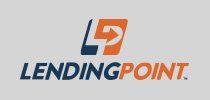
- Loan amounts: $2,000 – $36,500
- APR:7.99% to 35.99%
- Loan terms: 24-72 months
LendingPoint offers more flexibility than most lenders when it comes time for you to make your repayments, and their personal loans are available to borrowers in every state except Nevada and West Virginia. Many approved applicants qualify to receive the funds by the next business day and few need to provide documentation when applying.
To qualify for a loan with this issuer, you need to have a minimum annual income of at least $35,000, but minimum credit score requirements are not disclosed. You won’t be penalized for paying your loan off early and have a few options if you’re not able to make payment. For example, you can change the due date for your payments after closing if you need to. There’s also a 15-day grace period compared to the standard seven or 10-day window.
Unfortunately, LendingPoint may charge you an origination fee as high as 7%, which is on the high end and definitely something to be aware of since you’ll need to pay it when you close the loan.
Learn more about LendingPoint personal loans.
Best for small loans: LendingClub
Features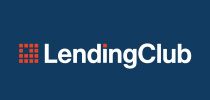
- Loan amounts: $1,000 – $40,000
- APR: 8.30% – 36.00%
- Loan terms: 36 – 60 months
Since it’s always a good idea to borrow as little as possible, LendingClub is our top pick for smaller personal loans. This lender offers a minimum loan amount of $1,000, perfect if you’re looking to borrow less and make smaller monthly payments over a few years.
Plus, with a maximum loan amount of $40,000, LendingClub is also a good choice if you want to consolidate debt or transfer a balance to lock in a lower APR. For debt consolidation loans, LendingClub can pay your creditors directly to make things easier for you.
This lender won’t charge a prepayment penalty if you decide to pay more than you’re required to but will charge an origination fee between 3% and 6% when you close. While LendingClub doesn’t allow you to sign with a cosigner, they do offer joint personal loans that you can take out with a co-borrower who has better credit than you.
Learn more about LendingClub personal loans or read our full LendingClub review.
Best for young borrowers: Upstart
Features
- Loan amounts: $1,000 – $50,000
- APR: 5.60% – 35.99%
- Loan terms: 36 – 60 months
Upstart personal loans are easier to get approved for than many others, making this one of the best lenders for fair credit personal loans. Especially if you’re younger with less credit, Upstart may be more likely to loan you money. This lender uses AI to automate its loan approval and underwriting processes and reduce risk for lenders.
Rather than using your score alone as some traditional lenders do, Upstart uses your income, employment history, and education to evaluate your creditworthiness. Although this doesn’t guarantee loan approval, it can help your odds if your credit score is on the lower side and give you a better rate. Plus, according to Upstart, their interest rates are 43.2% lower than lenders that use only your credit score to determine your eligibility.
Upstart origination fees range from 0% to 10%, though you’re not likely to get approved for no fee unless you have great credit. There is no prepayment penalty. Everyone who applies receives an instant decision and 99% of approved applicants get their loans by the next business day. Before you apply and put a hard inquiry on your credit, check your rate and preapproval.
Learn more about Upstart personal loans or read our full Upstart review.
Best for customer satisfaction: Best Egg
Features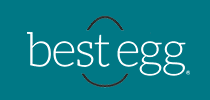
- Loan amounts: $2,000 – $50,000
- APR: 5.99% – 35.99%
- Loan terms: 36 – 60 months
While nobody really likes taking on more debt, Best Egg customers are some of the happiest about it. This online lender has an A+ rating with the Better Business Bureau and a 95% customer satisfaction rate, plus they’re known for providing above-average service.
Best Egg offers both unsecured and secured loans with competitive annual percentage rates, and they’re more transparent than many lenders about what they need to see from you in order to give you their lowest rates. A minimum credit score of 700 and an individual annual income of $100,000 are required to qualify for the 5.99% APR. Although your credit score might not be high enough to secure the lowest interest rate available, Best Egg does accept some applicants with fair credit.
You’ll probably pay a one-time loan origination fee of 5% or more with Best Egg , but this lender won’t penalize you for paying before your due date or exceeding your minimum payments. To avoid late charges, you can enroll in autopay services or even change your payment due date (if you qualify for this feature).
Learn more about Best Egg personal loans or read our full Best Egg review.
Best for better credit: Discover
Features 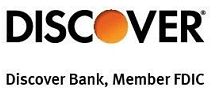
- Loan amounts: $2,500 – $35,000
- APR: 5.99% – 24.99%
- Loan terms: 36 – 84 months
If your credit score is on the higher end of fair and you don’t have a ton of existing debt, Discover could be the personal loan company for you. This company may not specialize in personal loans like some of the others and is probably known better for student loans and credit cards, but Discover’s personal loans are tough to beat — if you can qualify.
Discover doesn’t charge origination fees or really any type of fees unless you make a payment late, and their interest rates are lower than most. Plus, you have the option to pay back the full loan within 30 days if you change your mind about needing it without getting charged any interest. This is not the standard.
However, Discover requires a minimum credit score of 660 to qualify for a personal loan, which is right at the top of the fair credit range. We appreciate that they disclose this requirement before you apply but wish they would not automatically disqualify applicants with lower credit scores. If you do meet the minimum, you can check what rates you qualify for instantly.
Learn more about Discover personal loans.
Loan aggregators you can use to find personal loans
If you can’t decide on a direct lender, using a loan aggregator can help you narrow down your options.
These let you shop with multiple personal loan lenders with one application to find the best rates, terms, and loan amounts for you. Here are a few of our favorite loan aggregators that make finding both secured and unsecured personal loans for fair credit easier, faster, and less stressful.
Fiona
In 60 seconds or less, you can apply with Fiona and receive customized quotes for personal loans from multiple lenders at once. Fiona makes finding and comparing personal loan offers faster and less stressful by letting you search for only fair credit personal loans in the amounts you need. You’ll see the APRs, monthly payments, and term lengths for your different loan options before you even apply. This aggregator is free to use and does not affect your credit.
Choose Fiona if you don’t know where to start your search.
Learn more about Fiona or read our full Fiona review.
Credible
Credible is another loan aggregator that shops multiple lenders after you provide some basic information. You can enter any amount between $600 and $100,000 and compare your offers without hurting your credit. Depending on the lender you choose, you may be eligible to receive your funds by the next day. Many Credible partners don’t charge origination fees and with Credible’s Best Rate Guarantee, you can be sure you’re getting the best rates possible.
Choose Credible if you’re looking for the lowest rates.
Read our full Credible review.
Credible Operations, Inc. NMLS# 1681276, “Credible.” Not available in all states. www.nmlsconsumeraccess.org.”
Credible Credit Disclosure - To check the rates and terms you qualify for, Credible or our partner lender(s) conduct a soft credit pull that will not affect your credit score. However, when you apply for credit, your full credit report from one or more consumer reporting agencies will be requested, which is considered a hard credit pull and will affect your credit.
Monevo
To help match you with personal loan offers, Monevo will use your credit information and income to show you multiple loans you prequalify for at no cost to you and with no impact on your credit. Monevo partners with over 40 different lenders in the U.S. and gives each of them the option to show you alternative lending options if you aren’t approved for their fair credit personal loans. In general, Monevo shows more offers than the other aggregators we’ve listed, even for fair credit loans.
Choose Monevo if you want to review as many options as possible.
Learn more about Monevo or read our full Monevo review.
How we chose the best personal loans for fair credit
To choose the best lenders for fair credit personal loans, we looked for things we knew would be useful to people who are working on their credit and looking to borrow money. Taking on a new loan of any kind is a big deal, so we made sure the lenders we chose can give you the flexibility you need to increase your debt as responsibly as possible.
More specifically, we looked at two main factors:
Terms and loan amounts: Because choosing the right loan for your unique situation is so important, we looked for fair credit lenders that offered a variety of loan terms, amounts, and repayment options. Although you might not receive your preferred rates and terms when you apply for a loan, you should have a shot at the personal loan you want.
Repayment terms and flexibility: We leaned toward lenders with any features and perks to make your life easier when repaying your personal loan. This includes things like:
- Interest discounts
- No prepayment penalties
- Autopay options
Any lenders that we were able to confirm require higher than fair minimum credit scores have been excluded from our list, but we weren’t able to get exact credit score requirements for all of the ones we did choose either. As we mentioned, many personal loan providers aren’t exactly forthcoming with this information.
What is fair credit?
According to Experian, any credit score between 580 and 669 is defined as fair. So what does that look like compared to all possible score ranges? The FICO credit score categories are:
- Very poor: 300 – 579
- Fair: 580 – 669
- Good: 670 – 739
- Very good: 740 – 799
- Exceptional: 800 – 850
With a credit score in the fair range, you’re not the worst borrower as far as lenders are concerned but you’re also not the best. If you’re just outside of this range in either direction, you may or may not be treated as if you have fair credit.
Fair credit is not a guarantee of approval or denial, but it will make getting a personal loan — or any kind of loan — more difficult. But the exact credit score requirements for fair credit personal loans really just depend on the lender. Some will accept applications from fair credit borrowers if the rest of your application is favorable (good income, low debt-to-income ratio, etc.) and others will deny you if you have a less than ideal credit score.
To make matters more confusing, most lenders don’t disclose the minimum credit score requirement they’re looking for, so it’s a bit of a guessing game. This is why we recommend getting pre-qualified when you can to avoid being outright denied. (Unfortunately, you can still get turned down with pre-qualification, but the chances of this happening are lower.)
And if you do meet a minimum credit score requirement and get approved, it won’t be with the best rates. These are typically reserved for borrowers with great or excellent credit scores and squeaky clean credit histories (i.e. a very small portion of the population).
Because your score alone doesn’t define you as a borrower, fair credit isn’t enough to tell whether you’ll be approved or denied for a loan.
What leads to a fair credit score?
Your creditworthiness, or how reliable and responsible you are with the money you borrow, takes both your credit score and credit history into account. But most likely, if you have a fair credit score, it’s because you have some sort of issue with your credit history.
All of the following can lead to fair credit:
- Too much credit opened in a short amount of time
- Lack of credit or a short history of borrowing
- New or older derogatory marks
You don’t want to be stuck with fair credit for long, and understanding what score you have and why you have it is the first step to fixing it.
Because your credit is unique to you, it’s impossible to say for sure if you’re going to get approved for a personal loan with your credit score and history. But we can tell you how lenders use your credit to decide if they’re going to loan you money.
Read more: What is a fair credit score? And how to improve it
How lenders look at your credit when you apply for a personal loan
All lenders use your credit score to decide if they’re going to give you a loan or not. But they’re not just looking at your score.
Your credit score and credit history are used to determine not just your eligibility for a loan but also the annual percentage rate if approved. This is how much interest you’ll pay over the life of the loan. The best or lowest interest rates are always reserved for the borrowers with the highest credit scores, highest incomes, and cleanest credit histories.
Most lenders look at your overall credit history to determine how risky it is to loan money to you and how likely you are to pay them back. They’re looking at things like derogatory marks, your debt-to-income ratio, and inquiries on your report.
Derogatory marks
Derogatory or negative marks on your credit report make you a riskier borrower because they show lenders that you have had trouble making repayments on your debt. Derogatory marks that lead to a lower credit score include:
- Bankruptcies
- Foreclosures
- Judgments
- Tax liens
- Collections
You can get a great personal loan with fair credit, but major derogatory marks (especially recent ones) do significantly hurt your odds. Missed or late bill payments also bring your credit down.
Many derogatory marks stick with you for several years before they’re removed from your credit. Being aware of what dings you have and how long you’ve had them is a good way to approximate your odds of approval.
Even if you meet credit score requirements, derogatory marks on your credit can prevent you from being approved for a personal loan.
Debt-to-income ratio
Your debt-to-income ratio or DTI shows how much money you owe in relation to how much money you make.
A good debt-to-income ratio is considered to be below 36%. This means your debt requires about 36% of your gross income to repay each month. Lenders may automatically rule you out if your DTI is much higher than this because they suspect you’re borrowing close to or over what you can afford and may miss payments.
Read more: Debt-to-income ratio calculator
Hard inquiries
Applying for a loan — or any new line of credit — almost always adds a hard credit inquiry to your credit report. These are also known as hard pulls. Hard pulls can negatively impact your credit and bring down your score (usually only slightly) when you have too many in a short period of time because they show that you’re trying to borrow a lot of money at once. This might lead lenders to assume you’re in financial trouble and not want to give you more money. Hard credit inquiries usually stay on your report for two years. They are likely to have a greater impact on your credit if you have a lower score or less history.
A soft inquiry or soft pull, on the other hand, won’t hurt your credit. Soft pulls are not as in-depth as hard pulls because they look at your credit more generally. Getting prequalified with
Read more: Soft pull vs. hard pull – How each affects your credit
What other loans can you get with fair credit?
A personal loan isn’t your only option for borrowing money. There are a number of other types of loans and lines of credit you can get with fair credit, but the right one for you depends on how you’re going to use the money, the loan amount you’re going for, and how much risk you’re willing and abe to take.
Home equity loans for fair credit
In some cases, a home equity loan might make more sense for you than a personal loan. Home equity loans allow you to take a loan out against the equity you’ve built in your house. You can use some or all of your equity as collateral, depending on your situation.
A home equity line of credit or HELOC is similar. HELOCs turn your equity into a revolving line of credit you can draw from as needed.
With a home equity loan, you receive the full amount of your loan upfront. With a HELOC, you withdraw what you need while the line is open up to the limit.
Both of these can provide a source of income, but using your home to secure a loan is incredibly risky. While you technically can take out home equity loans and HELOCs with a credit score in the fair range, it’s not typically recommended.
Read more: Home equity reality check: Everything you need to know before taking out a home equity loan
Payday loans for fair credit
Payday loans are short-term loans that are most often used in cases of emergency. Borrowers might take one out when they’re between paychecks in order to pay their bills or make ends meet. When you take out a payday loan, you’re borrowing against your next paycheck with interest (sometimes as much as 300% or more).
Usually, loan amounts for payday loans are very low and the interest rates are very, very high. Payday loans are ridiculously easy to qualify for, even with a fair credit score or blemished credit history, but that doesn’t mean you should apply. In fact, we highly recommend against payday loans. Click the link below to read why payday loans are a bad idea.
Read more: Why is a payday loan a bad idea?
Auto loans for fair credit
If you’re considering taking out a personal loan so you can cover the cost of a new car, your other option is an auto loan. Many auto loan issuers do accept borrowers with fair credit, but, like personal loan issuers, they won’t give you their prime interest rates (which may be higher than personal loan rates).
To choose between a personal loan and an auto loan, try plugging your information into some loan aggregator platforms and prequalification forms to see what rates you’re eligible for.
Read more: The best car loans for people with bad credit
How to choose the best fair credit personal loan for you
Personal loans are personal, believe it or not. The right loan and lender for someone else might not be the right one for you. Here are the factors to consider when choosing a personal loan.
Monthly payments
What can you afford to pay each month toward your personal loan? Your monthly payment is based on how much money you’re borrowing and how long you have to pay it back, so it will vary from lender to lender depending on what choices they offer you.
Loan origination fees
An origination fee is a fee charged to cover the costs of processing your application and creating your loan. Many lenders charge origination fees, but it’s also common for them not to be charged. How much you pay may depend on the state you live in and your credit.
Late fees
Most lenders stick you with a late penalty if you don’t submit a payment by the due date. This could be anywhere from $20 to $60. Some will give you a grace period or a number of days past your due date so that you can make the payment to avoid the fee, but others don’t. Make note of this when researching too.
Interest rate
This is the percentage a lender charges on the principal balance of your loan that you must repay each month. Loan interest rates are almost always fixed, so they’ll stay the same for the entire time you have the loan. Because your credit score is used to determine your rates, you may end up paying more interest than other borrowers. Make sure you shop around before deciding on a lender to get the best rates possible.
Repayment terms
If you’re able to pay off your debt early or make a larger monthly payment, will you be charged a prepayment penalty? Can you skip a monthly payment if you need to or change the payment due date? Look for lenders with more forgiving policies.
Should you get a personal loan?
There are a lot of reasons to take out a personal loan. Debt consolidation is just one common reason, and one that can ultimately help you save money and improve your credit. Consolidating your debt can help you save on interest if you have multiple sources of high-interest debt such as credit card debt (which often carries sky-high APRs), avoid late fees and missed payments, and simplify repayment so you can pay off your debt faster.
People may also use personal loans when making a large purchase such as buying a new car or covering the costs of a wedding. Unplanned expenses such as emergency repairs on your house, medical bills, big renovations or additions to your home, and vacations are also reasons you might consider getting a personal loan. If money is tight, a personal loan can help pay the bills. You may do this if you’ve been laid off, taken an extended break from work, or changed jobs.
But as always, it’s important to think twice (and then three times) before borrowing any money. Make sure you understand how your credit will be impacted, you have room in your budget for the monthly payments, and you don’t take out any more money than you absolutely need.
If you can go without a personal loan until your credit score is a little higher to secure better interest rates and terms, try to do that. If not, do what you need to do and know what you’re getting yourself into.
How to apply for a personal loan
Before you apply for a new loan, get preapproved. Getting preapproved doesn’t affect your credit score and can save you from wasting time with lenders that won’t accept your application. Then, when you are ready to apply, you can know whether or not you’re likely to be approved.
Documents you need to apply for a loan
When applying for a personal loan online, you may or may not need to provide documents before you can receive a final offer. These can include:
- Your most recent pay stub and W-2s to document your income
- Evidence of Social Security or pension income (award letter or 1099)
- Contact information for your employer
- Copies of completed income tax returns for the past two years, if you’re self-employed or work on commission
- Bank or brokerage statements, or even retirement account statements
- Written explanations for credit problems, including documentation of extenuating circumstances (job loss, medical events, divorce, etc.)
Prepare all of these before applying to speed the process along and increase your chances of approval if you can explain your credit situation and show that your fair credit score won’t impact your ability to make payments.
Should you use a cosigner to get approved?
If you have poor credit, signing with a second person who’s more creditworthy than yourself can help you get approved. When you sign with a cosigner, you’re shifting the debt payment obligations off of yourself and onto the cosigner if you’re not able to pay. This is why asking someone to cosign a loan with you is a very big deal. However, if you get repeatedly denied when applying for loans on your own, this could be one of your only options.
Not all personal loans allow for cosigners, even those you can get with fair credit. In fact, online lenders rarely let you sign with another person. If this is something you’d like to explore, you may need to try your luck with a bank or credit union or hold off on applying with a lender before confirming that they’ll accept cosigned applications.
Read more: What does being a cosigner really mean?
Can you get a personal loan with fair credit if you’re self-employed?
If you’re self-employed and have fair credit, getting a personal loan can take a little more legwork, but it can be done. Lenders might request more paperwork from you to prove your income and show that you’ll be able to repay the debt in the absence of a W2.
To increase your chances of approval, present other sources of income or wealth if you can and borrow as little as possible. Read more below.
Read more: How to get a personal loan when you’re self-employed
How does applying for a loan affect your credit score?
Although getting a quote for a loan usually won’t affect your score, actually applying for a loan does. More specifically, your credit score will drop a little whenever you apply for a new line of credit or loan. Unfortunately, this is true whether you’re approved or denied because every inquiry is evidence that you needed to borrow money at the time you applied.
Steps you can take to improve your credit score
If you have a poor or average credit score, one of your top financial priorities should be working on your credit. Your credit score will affect everything from loan approval to interest rates. Even rental property applications will check your credit.
Though great credit doesn’t mean everything will be smooth sailing, it does make borrowing money easier. Fair credit happens, but it doesn’t have to follow you forever. Before you do anything, keep these two things in the back of your mind:
Improving your credit takes time. Improving your credit can take months or years, depending on your credit score and history as a borrower. You probably won’t see significant changes right away, but if you’re consistent, your score will get better.
The only one who can improve your credit is you. Whatever you do, don’t pay a credit repair service to “fix” your credit for you. Not only are a lot of these businesses shady and scammy, but they also tend to charge a lot for doing very little. In fact, credit repair services can’t legally do anything for you that you can’t do for yourself. They can’t “remove” anything from your credit report or guarantee a higher score when they’re done. All they’re going to do is dispute errors for you.
So with these two facts in mind, here are steps you can take right now to work toward a better credit score.
Pay your bills on time
If you have a history of late payments, make every effort to change that. The more on-time payments you make, the better your credit score will be over time. The more late payments, the worse your credit and the harder it gets to dig yourself out.
For the most part, all bill payments and debt repayments you make are reported on your credit. If they’re made before the due date, this reflects well on you as a borrower and makes you appear more responsible in the eyes of potential lenders. If they’re made after the due date or not made at all, this will show that you have trouble repaying your debt and make lenders hesitant to let you borrow any more money.
Both late fees and missed payments negatively affect your credit. To avoid late fees and bringing your credit score down further, we always recommend enrolling in Autopay when it’s available. That way, you don’t have to remember to make your payments on time. Some lenders even offer a discount for using Autopay services.
Check your credit report regularly
Only good things come from checking your own credit. Looking at your credit score and credit history won’t hurt your credit in any way, so don’t hesitate to do it whenever you think about it. This can not only help you track your progress on your credit-building journey but also look for errors that could be bringing your score down.
For example, you might find that a collections account has been incorrectly listed twice and dispute this with the credit bureau responsible.
Read more: Credit repair: Fix bad credit on your own in 6 easy steps
Pay off past due balances
Any balances on your report such as collections or judgments really hurt your credit score, especially if they’re unpaid. Paying past due balances off won’t make the derogatory marks go away, but it can bump up your credit a smidge.
Pay down your credit card debt
Your credit utilization ratio is responsible for up to 30% of your credit score. This is the ratio of the total credit you use over the amount you’re approved to use across all of your credit limits.
Lenders don’t like to see higher ratios because they show that you’re probably close to what you can reasonably pay back and loaning more to you could be risky. A high ratio (anything over 30%) can hurt your credit but a lower ratio can help significantly.
Keep your credit cards
Avoid canceling your credit cards when you want to improve your credit score. This often has the opposite effect of hurting your credit because it lowers your overall credit limit. If your credit limit is lower but you continue borrowing the same amount or charging the same amount to your credit cards each month, your credit utilization ratio will be higher.
Closing credit cards can also lower the average age of your accounts, which can bring your credit score down further.
Read more: When (if ever) should you cancel a credit card?
Don’t apply for new credit
Have you ever heard the myth that opening more credit can raise your credit score? Unfortunately, this is a common misconception. In reality, new loans and lines of credit hurt your score because they lower the average age of your accounts, add hard inquiries to your report, and make you riskier to lend money to by increasing your debt-to-income ratio.
If you can avoid it, don’t add new inquiries to your report for a while after applying for a personal loan, especially if you already have poor or fair credit.
Summary
You can get just about any type of loan you need with a fair credit score, including personal loans. Personal loans can be used for a variety of purposes from consolidating debt to paying for large and/or unplanned expenses, and they’re available to all borrowers.
Everybody wants to have a good or excellent credit score, but we all have to start somewhere, and your credit shouldn’t stop you from getting help when you need it. Fair credit personal loans might not offer the interest rates and terms you’re hoping for, but there are still plenty of options to choose from so you don’t have to settle for a lousy loan. Get to work on bringing your credit score up and repaying your personal loan, and you’ll be in good shape.

